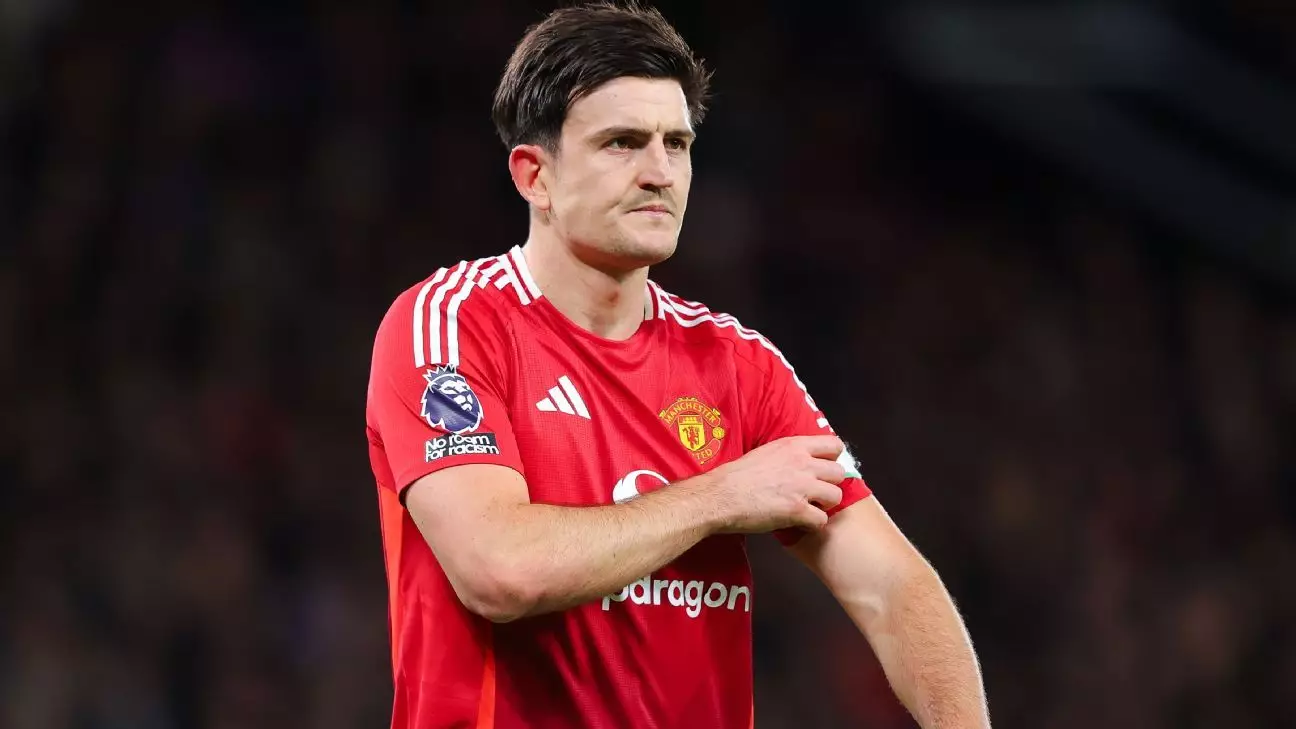In the high-stakes environment of professional football, leadership is not merely a desirable trait; it serves as a cornerstone for team performance and cohesion. As Manchester United gears up for a crucial encounter against Liverpool, manager Ruben Amorim has drawn attention to what he perceives as a significant void in leadership within the squad. The admission comes at a time when the team is reeling from four consecutive defeats and languishing in a precarious 14th position on the Premier League table. Amorim’s comments regarding the extension of Harry Maguire’s contract bring to light the urgency for strong on-field leadership to turn the team’s fortunes around.
Amorim’s announcement to extend Maguire’s contract until June 2026 reverberates with both hope and concern. While the decision seems to stem from a recognized need for leadership, it simultaneously raises questions about the defender’s capability in fulfilling such a role. Historically, Maguire has faced scrutiny for inconsistent performances and being subject to criticism from fans and observers alike. By placing the burden of leadership upon him, Amorim is gambling on the notion that Maguire can rise to the occasion, enhancing his influence and performance on the pitch.
While it is understood that leadership often emerges under pressure, the willingness to demand improvement from Maguire is indicative of deeper issues within the squad. The truth remains that leaders should inspire confidence and drive results—not merely fill a roster spot. Amorim’s assertion that his team is “starving for leaders” paints a bleak picture and suggests a broader structural issue within Manchester United, implying that the leadership vacuum has been problematic for some time.
The upcoming clash with Liverpool is laden with existential implications. Liverpool’s stronghold at the top of the table, juxtaposed against United’s declining form, sets the stage for a dramatic encounter deeply rooted in historical rivalry. For United, the specter of having not won at Anfield since 2016 looms large, a harrowing statistic exacerbated by their current streak of failures. Amorim’s refusal to dwell on what could go wrong shows a desire to cultivate a proactive, performance-oriented mindset within his players, yet optimism may be challenging to maintain in the face of mounting pressure.
Moreover, Amorim’s remarks about training suggest an attempt to fortify his team’s resolve amidst adversity. Yet, the query remains: Is practice alone sufficient to instill the kind of robust leadership that United so desperately needs? There exists a palpable need for a cultural renaissance within the club’s ecosystem—a transformation that often necessitates not only skill but also the psychological fortitude of its key players.
Another critical aspect lies in understanding the mental resilience of the squad. The incident involving Joshua Zirkzee, who was booed when substituted after only 30 minutes against Newcastle, illustrates the challenges players face under pressure. Zirkzee’s response—storming off the pitch—epitomizes the struggle many players encounter when expectations are misaligned with current realities. Amorim’s supportive words indicate an acknowledgment of the psychological warfare that players endure, yet this does not absolve the necessity for emotional maturity required in high-stress situations.
It underscores the imperative for Manchester United to foster a nurturing environment that allows players not only to compete but to grow. An effective leadership dynamic must include mechanisms to handle individual and collective setbacks, fostering resilience rather than allowing frustration to take root.
As Manchester United moves forward, the urgency of addressing its leadership crisis becomes increasingly evident. The paths of rejuvenation are fraught with uncertainties; nevertheless, Amorim’s acknowledgment of these challenges is a positive step. United must cultivate leaders who can inspire and elevate the team’s performances, lest they remain trapped in an interminable cycle of mediocrity. The clash with Liverpool, while daunting, serves as an opportunity for the team to demonstrate its potential and resolve to overhaul an adverse narrative. In football, as in life, the capacity to transcend obstacles often defines success; thus, the season ahead may ultimately hinge on turning perceived liabilities into strengths.

